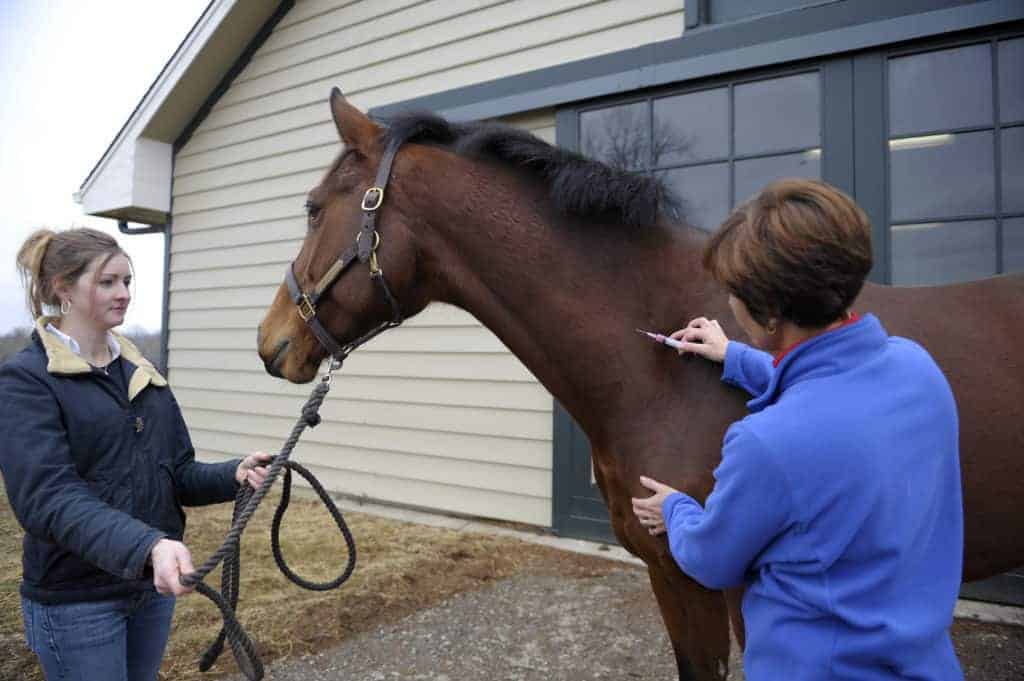
South Carolina Reports First Equine EEE Case of 2015
An unvaccinated horse from Barnwell County died after contracting the mosquito-borne disease.

An unvaccinated horse from Barnwell County died after contracting the mosquito-borne disease.

An 8-year-old Quarter Horse from Cumberland County died despite veterinary treatment.

Both horses–one from Newton County and one from Orange County–were unvaccinated against Eastern equine encephalitis.

The affected horse, a 12-year-old Miniature mare from Chesapeake, had not been vaccinated against the virus.

Vaccinating, eliminating standing water, and stalling horses can reduce the risk of mosquito-borne disease.

Following floods, Texas animal health officials say mosquito-borne disease incidence could increase.

Timely vaccination has been shown to decrease disease incidence drastically.

Owners are encouraged to vaccinate their horses prior to the onset of peak mosquito season.

Design vaccination protocols to maximize each horse’s innate and adaptive responses to disease challenges.
Diseases diagnosed include herpesvirus, tetanus, strangles, piroplasmosis, West Nile virus, and more.

Horses require two doses of the vaccinations initially and then boosters at least annually.
Diagnosed diseases include strangles, influenza, vesicular stomatitis, hendra virus, salmonellosis, and more.

Learn how vaccines can protect horses, why they’re important, and which ones your horse needs in our visual guide.

Learn about 20 important equine infectious diseases that could make your horse sick, how they are spread, and ways to prevent them in our easy-to-follow visual guide.

Kentucky officials reported 12 cases of WNV and two EEE cases in horses in 2013.

A Dec. 12 update indicates 338 WNV cases and 181 EEE cases have been reported since the start of the year.
Stay on top of the most recent Horse Health news with
"*" indicates required fields